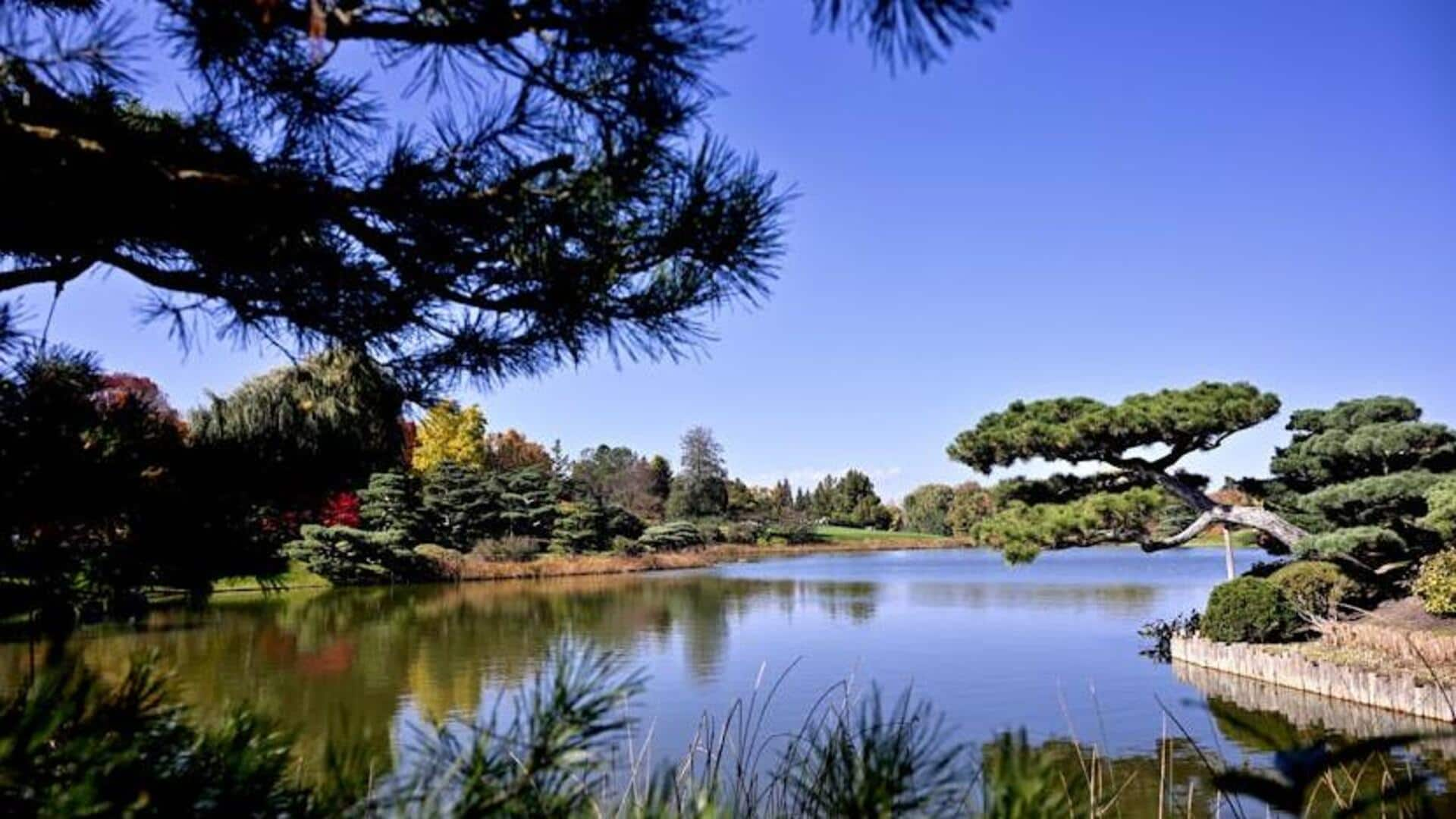
5 fascinating facts about Japanese garden culture
What's the story
Japanese garden culture is an interesting combination of art, nature, and philosophy. The gardens are not just about beauty, but they also hold deep cultural meanings and traditions. From the careful placement of rocks to the symbolic use of water, everything in a Japanese garden carries a meaning. Here are five interesting facts about this unique aspect of Japanese culture, its history, and relevance today.
Rock arrangement
The art of rock placement
In Japanese gardens, rocks are not just ornamental pieces. They are intentionally set to signify mountains or islands. This technique is called ishi wo taten koto, meaning "the act of setting stones upright." The arrangement is based on rules that have been handed down generations. Rocks are emblems of stability and endurance, mirroring the garden's relationship with nature's timelessness.
Water elements
Symbolism of water features
Water plays an integral role in Japanese gardens, representing purity and serenity. Ponds commonly depict oceans/lakes, whereas streams depict rivers winding through terrains. The sound of water creates an auditory effect, which further contributes to the peacefulness of the garden. In dry gardens, sand/gravel may be employed to simulate water bodies, displaying the versatility and ingenuity behind Japanese garden design.
Seasonal dynamics
Importance of seasonal changes
Japanese gardens also keep in mind the seasonal change. Plants are chosen in a way that they display different colors as the year progresses. Spring brings cherry blossoms, summer is all about lush green, autumn is vibrant with colors, and winters are evergreen - all resulting in a landscape that changes with every season. The emphasis on seasonality also shows Japan's love for nature's cycles.
Tea ceremony spaces
Role of tea houses
Tea houses also form an integral part of many traditional Japanese gardens. These structures offer a room for conducting tea ceremonies—a Zen Buddhist practice that focuses on mindfulness and simplicity. The path leading to a tea house is often crafted as a journey through nature itself—encouraging visitors to leave worldly concerns behind before stepping into the sacred space meant solely for reflection.
Global impact
Influence on Western gardening practices
Japanese gardening principles have greatly impacted Western landscaping over the years, especially during times when Japan opened up trade relations with other countries (like Europe during the late 19th century Meiji era reforms). This prompted many a Westerner to adopt minimalist designs inspired by Zen aesthetics witnessed within these tranquil spaces back home, too!